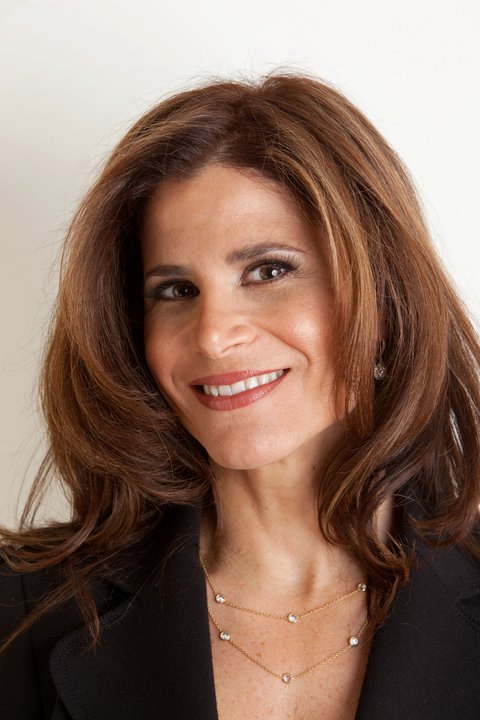Although, I talk to Gayle all the time, I finally got to ask her a few questions about her passion and career as a Speech Pathologist.
Who needs a speech therapist?
There are many kids and adults who can benefit from speech therapy. Basically, any difficulty in communication or swallowing can warrant a Speech-Language Evaluation.
Here are some of the most common areas of need:
• difficulty pronouncing words, a lisp, sound substitutions that make speech unintelligible
• late talkers (not speaking by 12-18 months)
• toddlers that don’t follow directions, slow to grasp concepts
• limited verbalization, have difficulty expressing themselves
• trouble getting the words out – that’s what we think of as stuttering
• difficulty organizing their thoughts and prioritizing their work (Executive Functioning)- especially children with Attention Deficit Disorder (ADD/ADHD). Kids with Executive Functioning have difficulties are our children that don’t know how to tackle their homework or do long-term assignments. They tend to get overwhelmed and don’t know where to start. A Speech Pathologist can help them develop skills that will help them to organize, prioritize and execute their academic work.
• Delayed social language (difficulty attending to topic, maintaining topic, interaction challenges)
• Voice disorders (hoarse, breathy voices that may be a result of a benign pathology, like nodules)
• Motor Speech Disorders (difficulty sequencing and putting sounds together due to a motor programming issue known as apraxia)
What does a speech therapist do?
A Speech Therapist evaluates and treats children and adults with a variety of Speech, Language (processing, comprehension), Voice and Swallowing issues.
A thorough evaluation doesn’t just look at the primary complaint a patient has, or the presenting problem, but delves deeper by taking a detailed medical, developmental and background history. The Speech Therapist will try to find contributing factors to the problem which is often essential to determining a diagnosis and developing an individualized therapy plan.
How long have you been practicing?
I have been practicing for over 20 years. The majority of my practice has been in the University hospitals in Manhattan.
What would you do if you weren’t a Speech Therapist?
Pie in the sky dream was to be on a Broadway Stage. I was a music major for the first couple years of college, but when I learned my voice was better suited for Opera, my childhood dreams were crushed. I live vicariously through Idina Menzel.
In all seriousness,I would stay in a helping profession. Perhaps a therapist of a different type, a professor – loved my teaching gigs. I am interested in healthy lifestyle and how that impacts our mood, behavior, so maybe something in the wellness industry. I have two Holistic Nutrition degrees.
What kind of training and experience do you have working with children who are deaf or
hard of hearing?
I am on the Cochlear Implant Team at Weill Cornell Medical College. These children require Speech Therapy to get them to learn or sometimes relearn how to hear speech sounds. We take it for granted that we can hear a sound and know exactly what it is. Imagine if you were born without having that association – how would you know that a chirp was from a bird, a bark from a dog or a certain ring was a door bell.
What age groups have you worked with?
Because my background is hospital based, I’ve worked with almost every age and Communication/Swallowing issue you can think of, both children and adults. At this point in my career, I work predominantly with children from 12 months throughout high school.
Do you treat adults?
Absolutely. I work on stuttering, voice disorders, public speaking (interviewing preparation), and accent reduction/modification. One of my favorite professional experiences was working with Masters of Fine Arts candidates at the Actor’s Studio, New School, Manhattan. They came from 16 countries from around the world and had to learn how to adjust their English speaking dialect to a neutral sounding one.
Can you get rid of my Queens Accent?
.
That’s part of your charm! Most of the time, people want to retain their accent because it connects them to where they are from. For Actors and Broadcasters, it may limit where they can work. I have done some work with people that have recently immigrated to the US and have difficult being understood by their colleagues. This gets in the way of job opportunities and sometimes promotions, especially when public speaking/presentations are required.
I’ve been told that I sound like Fran Drescher . When I booked a hotel room in Chicago I was told by the reservationist that I sounded sexy; Happy for the compliment, but no free room!
That’s exciting! I guess in your case your voice could get you in trouble. Your voice is connected with who you are. It’s an expression of your persona. If it does not hinder you, why change it.
What speech problems do you most frequently work with?
I see such a variety of cases from standard articulation cases – like lisps, stuttering, language disorders to kids on the Spectrum (PDD/Autism). Because of my hospital background, I treat kids with Voice Disorders and medically related issues (structural and orthodontic issues).
I am PROMPT trained and have taken advanced training in this area so parents seek me out if their child is suspected to have developmental apraxia (motor programming disorder where sequencing of sounds is a challenge) or just not progressing in therapy elsewhere.
What do you love most about your job?
I love to watch the transformation in my kids. They often begin as self-conscious speakers, and often become confident communicators. Nothing is more rewarding than hearing from parents how their children are now willing to approach kids for play-dates, speak in class or try out for the school play, etc.
How do I know if my child needs a therapist?
Believe it or not, sometimes parents are the first to know that their child requires speech therapy and sometimes the last. As parents, we become so used to their speech patterns that we stop noticing any differences. Teachers, Coaches, Pediatricians and Dentists will often tell the parent if they think that there are issues that should be addressed. At the same time, Parents are often my primary referral source. They will often notice that their kids are not performing at the level of their peers or their other children.
What makes you different than other Speech Therapists?
I think that there are many great Speech Therapists – in private practice, schools and hospitals. My philosophy is that Speech therapy has to be goal oriented, individualized, effective and FUN! As much as I love my patients, I want them to improve as quickly as possible and get back to doing what they love to do. Hopefully they will leave with a renewed sense of accomplishment that allows they to realize their wildest dreams. Maybe even become a star on Broadway! Watch out Idina!!
Do you accept insurance?
No I don’t but I wish I could. I don’t know any private therapists that accept insurance because it is a laborious job to submit all the paperwork , wait for approval, and to follow-up with the insurance companies . It would require too many hours and results in a the low rate of reimbursement. Although third party reimbursement is not guaranteed, I do write detailed reports and most of my patients are reimbursed for part of the service.
Gayle A. Morris, M.S., CCC, is a licensed Speech-Language Pathologist in New York State and ASHA Certified. She works part-time at Weill Cornell Medical Center in Manhattan and has a Private Practice in Chappaqua, New York. She has been in practice for over 20 years.
Feel free to call Gayle with any questions you have. All information will be kept confidential.
[email protected]
914-471-2531



